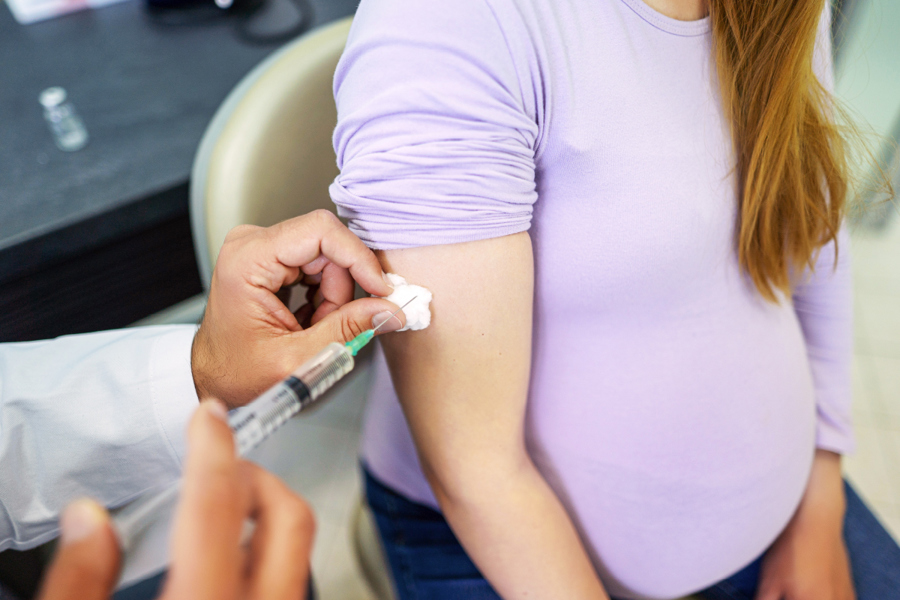
Before you travel overseas
It is important to ensure you are up to date with routine vaccines and consider whether you may require additional vaccines based on your travel itinerary, activities and risk of disease exposure.
People who are planning to travel internationally may need additional vaccines to protect against infectious diseases they may be exposed to while overseas. Vaccinations are recommended 6 - 12 weeks prior to your departure, and depend on your health, itinerary, planned activities and possible exposure to hazards.
Our knowledgeable vaccinating pharmacist can discuss your upcoming travel plans and help to assess your risk of exposure and medical history to determine which vaccinations you require.
Understanding your vaccination requirements
Vaccines protect you from infectious diseases that may be more prevalent in certain regions.
This not only keeps you safe but also helps prevent the spread of these diseases to others. Travelers may be exposed to diseases not common in their home country, and may helps mitigate the risk of contracting serious illnesses or diseases such as hepatitis A, typhoid, or meningitis.
It is also important to consider that in some countries or regions, medical care may not be as accessible or reliable.
Common vaccinations required for overseas travel:
- Diphtheria, tetanus and pertussis
- Hepatitis B
- Measles, mumps and rubella (MMR)
- Meningococcal disease
- Poliomyelitis
- COVID-19
- Hepatitis A
- Japanese encephalitis
- Rabies
- Typhoid
Up to date vaccination information
For Australians travelling overseas, visit the Immunisation for travel advice from Australian Government Department of Health and Aged Care.
FAQs
How long does it take to be get vaccinated?
Each appointment will take at least 15 minutes to ensure you are monitored for adverse reactions. Depending on your travel plans, you may need to allow more time to receive additional vaccinations, or follow up vaccinations if required.
When we receive a vaccine, our immune system gets to work immediately to create antibodies and memory cells to fight the infection.
However, the duration of immunity can depend on a number of factors, such as the nature of vaccine, the timing of dosages, our age, and whether we have had an infection naturally.
Travellers should ideally book an appointment 6-12 weeks before travel to ensure there is time to receive the recommended vaccines and develop immunity before travel.
Which vaccines can be considered for children who will be travelling internationally?
The following table lists vaccines that can be considered for children who will be travelling overseas and the minimum ages at which they can be administered.
Vaccine | Recommended Age |
| BCG | from birth |
| Rabies | from birth (available from birth, but lower priority amongst children not yet walking due to lower risk of animal bites) |
| Meningoccal ACWY | from 6 weeks (earlier administration than scheduled on NIP) |
| Meningoccal B | from 6 weeks (earlier administration than scheduled on NIP; funded under NIP for certain children only) |
| Japanese encephalitis | from 2 months |
| Influenza | from 6 months |
| MMR | from 6 months (earlier administration than scheduled on NIP) |
| Varicella (chickenpox) | from 9 months (earlier administration than scheduled on NIP) |
| Yellow fever | from 9 months |
| Hepatitis A | from 12 months |
| Typhoid | from 2 years |
| Cholera | from 2 years |
| COVID-19 | from 5 years |
Pharmacist can vaccinate children from 6 months of age for influenza, or from 2 years of age for other immunisations.
Are travel vaccines recommended for individuals travelling on cruise ships?
Cruises have been associated with an increased risk of certain infectious diseases, including the common cold, influenza, COVID-19, traveller’s diarrhoea, typhoid, and other gastrointestinal and respiratory infections.
It is important for travellers to discuss the details of their cruise with an immunisation provider – ideally, around 12 weeks prior to departure.
Vaccine recommendations will vary depending on the cruise itinerary and the traveller’s personal medical history and risk factors. Some cruise operators may have their own vaccination requirements for passengers.
Which vaccines are compulsory for those who are travelling from Australia to Mecca, Saudi Arabia to participate in pilgrimages?
People who travel from Australia to Mecca for Hajj and Umrah pilgrimages are required by Saudi Arabian law to show proof of meningococcal ACWY (MenACWY) vaccination within the last 3 years as part of the entry visa application process.
Mater Pharmacy offers the National Immunisation Program (NIP) vaccinations to eligible people at no out-of-pocket expense, as well as seasonal vaccinations such as Flu and COVID-19.
We can also help protect the community with travel vaccination(s) and consultations ahead of overseas travel.
To find out if you are eligible for a subsidised vaccination or to enquire about the cost of a vaccination or, please contact the team on 07 3163 1059.
Vaccination services are currently available at Mater Pharmacy Vulture Street, located within the entrance of Mater Private Hospital Brisbane (Level 6, opposite Chloe's Cafe).
-
Opening Hours
Monday to Friday 8am to 6pm
(Dispensary closed between 1.30pm and 2pm daily)
Saturday 9am to 1pmLocation
Level 6, Mater Private Hospital Brisbane
301 Vulture Street
South Brisbane QLD 4101
Getting here
Get Directions